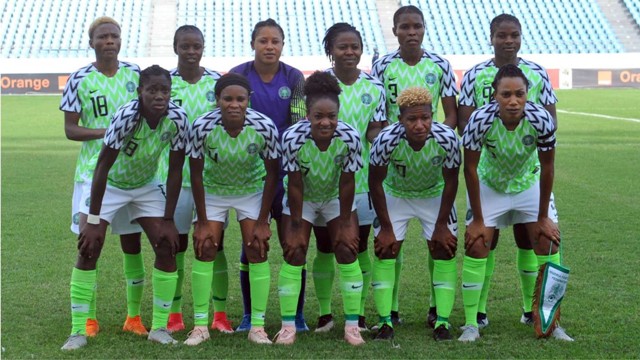Editorial
Women’s W/Cup: For A Successful S’Falcons’ Campaign

The 2023 FIFA Women’s World Cup being co-hosted by New Zealand and Australia kicked off last week in the two countries with the world’s best women footballers on show. The championship, which is the biggest world football event for women, is the ninth edition with the potential to change the game’s complexion forever.
Already, first round of matches have been concluded in the various groups with interesting results, both for some debutants and established teams. Africa has four representatives, Nigeria, South Africa, Morocco and Zambia out of the 32 teams at the mundial. As the continental flag bearers get set for their second Group matches, games that are certainly decisive to their chances of progress to the next stage of the competition, the African teams must raise their game to enhance their chances.
This is why, we think that the Super Falcons of Nigeria must dig deep, discover their A-game, beginning from this morning’s second group match against the Matildas of Australia to put themselves in good stead. The Falcons must push for a positive result after ekeing out a 0-0 draw and a point against Olympic champions, Canada.
We note, however, the odds facing the Falcons. Prior to their departure for the world cup, Coach Randy Waldrum had cried out over Nigeria Football Federation, NFF’s inability to offer the team effective support in form of adequate preparation and motivation, debt owed the coach and players in unpaid bonuses and other entitlements. There was also altercation between the team and the NFF over the latter’s decision not to consider any kind of bonus payment for the World Cup outings.
These, we believe would have been a cloud hovering over the team, reason for low morale and obvious situation to be de-motivated. Conversely, we are optimistic that the Super Falcons and their handlers should be able to find palpable opportunity to make strong statement with positive performances at the football fiesta.
Nigeria, an eleventh time African champion and ever-present participant in all the editions of the World Cup since its maiden edition in China in 1991 must draw from all her experiences to do not only the country, but Africa proud in Australia and New Zealand. They must be motivated by the fact that FIFA, this time, has made the World Cup more lucrative and attractive for the players. It is the first time that all players at the World Cup will be getting at least the sum of $30,000 from the world body, while the eventual winners will be entitled to a $10.5million prize money, with each player getting $270,000 from the largesse. There are also additional prize monies as teams progress in the competition.
We expect all hands to be on deck, especially, the NFF eggheads, who must ensure that the environment is not only conducive for the team to give their all, but that added incentive is dangled before the team.
The move by the Federal Government to approve the sum of $1.7million for the Falcons’ participation is commendable. We, however, hope that the money has been released without red tape and that the NFF will apply the funds appropriately.
Nigeria has proved herself a dominant force in Africa over time, this is another opportunity to prove that she can mix it with the elites of world women’s football, especially at this time that many countries are showing credentials of overthrowing others that have remained stagnant.
No effort should be spared to ensure that the Super Falcons soar to glory at the World Cup.
Editorial
Fubara: Celebrating A Leader At 51

Editorial
Beyond Accessing Bonny By Road

Editorial
Time For GL 17 In Rivers

-

 News3 days ago
News3 days agoDon Lauds RSG, NECA On Job Fair
-

 Niger Delta1 day ago
Niger Delta1 day agoPDP Declares Edo Airline’s Plan As Misplaced Priority
-

 Sports2 days ago
Sports2 days agoSimba open Nwabali talks
-

 Nation2 days ago
Nation2 days agoHoS Hails Fubara Over Provision of Accommodation for Permanent Secretaries
-
Niger Delta2 days ago
Stakeholders Task INC Aspirants On Dev … As ELECO Promises Transparent, Credible Polls
-
Niger Delta1 day ago
Students Protest Non-indigene Appointment As Rector in C’River
-

 Transport2 days ago
Transport2 days agoNigeria Rates 7th For Visa Application To France —–Schengen Visa
-

 Oil & Energy2 days ago
Oil & Energy2 days agoNUPRC Unveils Three-pillar Transformative Vision, Pledges Efficiency, Partnership

